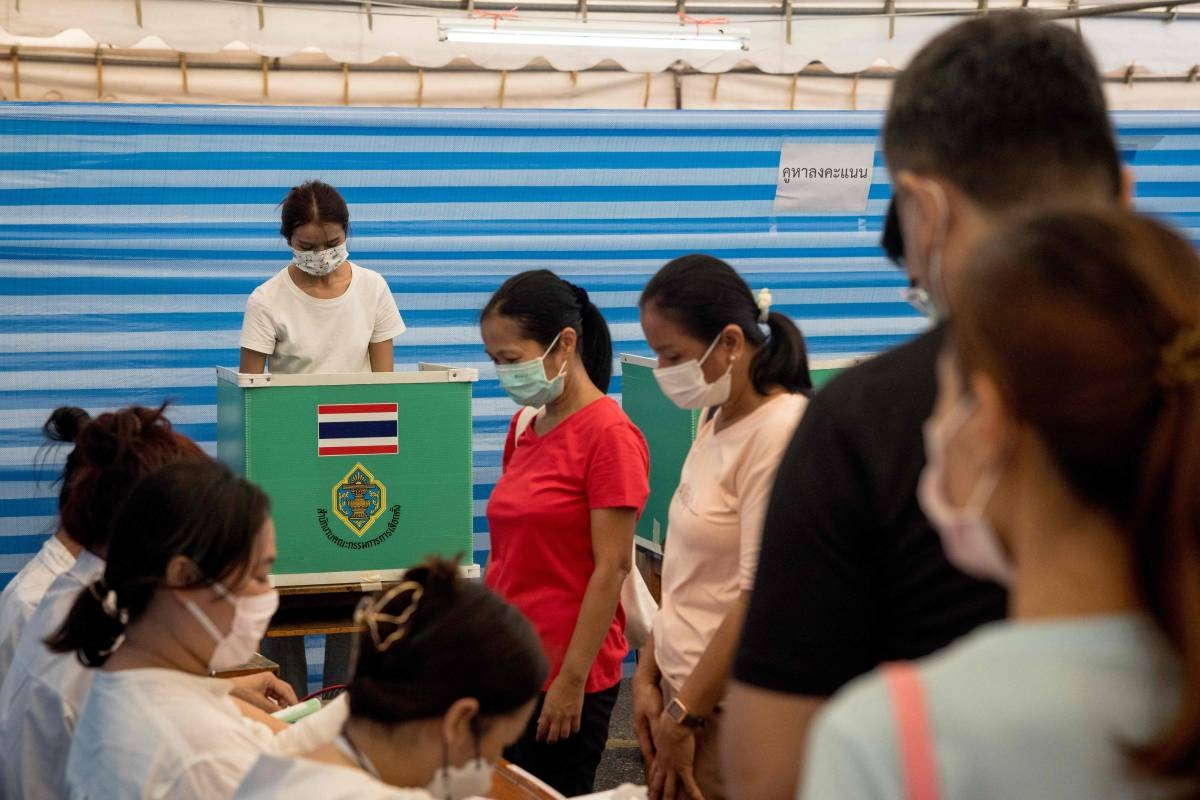More than two million people who registered for early voting began voting in Thailand on Sunday ahead of the general election next week, with opposition parties expected to gain a majority.
The vote comes amid an increasing power struggle in Thailand. The ruling military-backed coalition of Prime Minister Prayuth Chan-Ocha is up against a pro-democracy camp of opposition parties led by Pheu Thai and Move Forward in the May 14 election.
The main opposition Pheu Thai party’s performance will be crucial in defining post-election situations. Former Prime Minister Thaksin Shinawatra has been living in self-imposed exile in Dubai since 2008, but he continues to be the driving force behind the Pheu Thai party, which is now run by his daughter Paethongtarn Shinawatra.
Paetongtarn has stated that her goal is to win 310 seats, which would allow Pheu Thai to become prime minister and control a coalition with minor parties.
Even so, Pheu Thai will most certainly fall short of this lofty goal, thanks in part to the progressive Move Forward party splitting the anti-establishment vote. Despite polling strongly, Move Forward’s predecessor party, Future Forward, gained 80 seats in 2019 but may do less well due to subsequent electoral amendments.

Move Forward has the most distinct and ambitious policy platform of any party running in the election, aiming to revise Thailand’s constitution, remove military conscription, and reform the lese-majeste legislation.
The most likely electoral outcome, according to most observers, is a coalition government comprised of elements from both Pheu Thai and conservative parties.
Prayut’s long-serving deputy, General Prawit Wongsuwan, is portraying himself as the candidate of political reconciliation and publicly discussing a cooperation with Pheu Thai. A coalition of opposing political factions may appear strange, but in the pragmatic world of Thai politics, any agreement is conceivable.
Pheu Thai is concerned about these chances, fearing that suggestions of forming an alliance with conservative parties could harm its electoral prospects. And Thaksin most likely still harbours majoritarian tendencies.
While he may be open to a pragmatic arrangement, he has a history of being rash, and would likely take any opportunity to put Pheu Thai back in charge, even if it meant risking political turmoil.
Thai politics has had a cyclical aspect over the last two decades, with populist electoral triumph leading to conservative backlash, which leads to popular unrest and some political opening. Various moments of tension or protest in recent years did not emerge abruptly, but rather accumulated as various political avenues forward were gradually exhausted. Big protest movements take time to build, and both sides are exhausted and fatigued. All of this points to relative stability, at least in the short term.

However, there are risks and uncertainties, especially if Pheu Thai wins decisively. Thaksin’s possible return to Thailand could be one source of instability. He has stated numerous times that he will return, but this is the first time he has indicated that he is willing to go to jail.
It’s unclear whether he’d be willing to take that chance. A second destabilizer could occur in May 2024, when the appointed Senate loses its right to vote on prime minister selection.
This would further tip the scales in favour of the country’s conservative forces.
On the plus side, the election could boost Thailand’s regional importance, which has tragically declined over the last two decades.
Leading Pheu Thai official Srettha Thavisin has stated that if the party is elected, it will be open to new free trade deals (Thailand has not negotiated any major liberalising accords in nearly 20 years).
Progressive politicians have also criticised Thailand’s current government’s policy towards Myanmar. While they are unlikely to jeopardise the two countries’ military ties, they may push Thailand towards a more cooperative position within ASEAN.
This would give 2023 ASEAN Chair Indonesia much-needed momentum in its Myanmar diplomacy.
Thailand’s Tax Department Eyes Bt1000 Departure Fee






